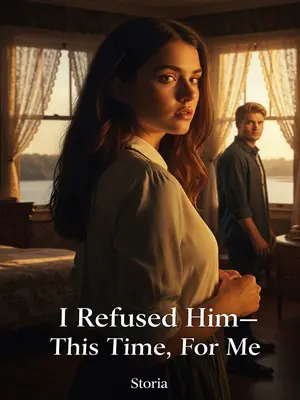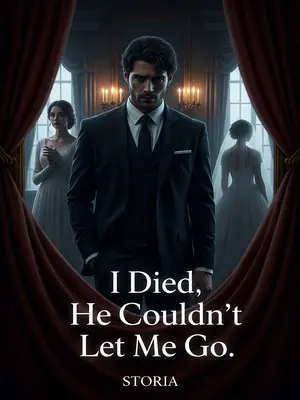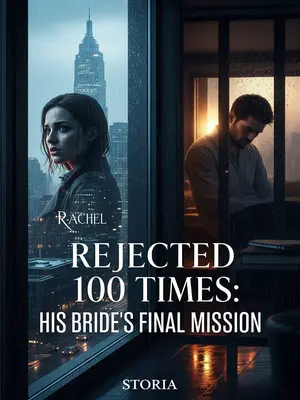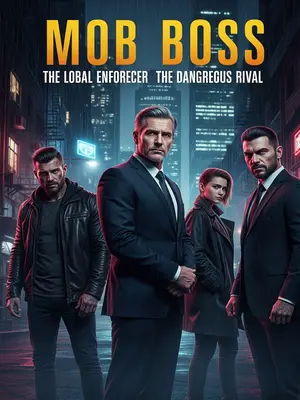Chapter 3: Flowers and Farewells
After Maria’s wounds were bandaged, I went on stage to give my speech as a featured alum. The flash of cameras enveloped me.
The auditorium was packed—students, faculty, parents all craning their necks to see. I took a deep breath, letting the applause wash over me, grounding myself in the moment.
I kept my cool as I delivered my remarks, earning a wave of admiration and applause.
My voice was steady, each word carefully chosen. I could feel the energy in the room, the hope and excitement swirling around me. It was almost enough to make me forget the ache in my bones.
I brought the microphone to my lips and spoke slowly. “I have one more thing to say: Every girl is like a flower, blooming in her own time. Don’t let rumors or old prejudice drown you out.”
I let the words hang in the air, watching faces light up in understanding. I wanted every girl in that room to know she mattered, that her story was worth telling.
In today’s world, a woman’s looks are never enough; being strong is seen as wrong; speaking up, even worse.
I saw heads nodding, girls sitting up straighter in their seats. The truth was heavy, but it needed to be said.
Even when Ethan ended up with Maria, everyone blamed her.
I remembered the whispers, the way people always found a way to blame the woman, no matter what. It made my blood boil, even now.
If people weren’t so prejudiced, they’d see—Maria only got ahead because Ethan opened doors for her.
The world was never fair, but maybe, just maybe, we could make it a little better—one speech, one act of kindness at a time.
Among all the bowed, thoughtful faces, I spotted Maria, her head wrapped in bandages.
She sat near the back, eyes shining with unshed tears. I caught her gaze, and for a moment, it felt like we were the only two people in the room.
Her eyes shimmered with tears as she met my gaze across the room. We smiled at each other.
It was a small, private moment, but it meant everything. I hoped she felt the strength in my smile, the promise that she wasn’t alone anymore.
Maria grew up in a family that favored sons over daughters, probably taught all her life to put her brother first.
I thought about all the girls like her, fighting to be seen, to matter. I wanted to reach back through time and hug every single one of them.
Growing up in a family like that and still turning out okay was no small feat.
Maria was proof that you could survive anything, and still come out kind. I admired her more than she’d ever know.
After that speech, I took over Calloway Holdings’ operations. As the only daughter, people listened when I spoke.
It was a strange feeling, stepping into the role my father had always imagined for me. The office felt different with me in charge—brighter, somehow, more hopeful.
I worked hard, and—whether I meant to or not—let Maria see which companies we should invest in, how to plan for the future.
I’d leave files out on purpose, ask her opinion on new projects, encourage her to speak up in meetings. She caught on quick, soaking up knowledge like a sponge.
Maria had a sharp eye. Every company she picked made us a fortune.
It was uncanny, the way she could spot a winner from a mile away. The board started taking notice, and soon, her reputation grew beyond just being my protégé.
She suggested I invest in niche tourism, and I took her advice.
It was a risk, but I trusted her instincts. We poured resources into the project, hoping it would pay off.
As soon as the project launched, it was a massive hit.
The phones rang off the hook, reporters called for interviews, and our stock price soared. Maria beamed with pride, and I felt like a proud big sister all over again.
I was amazed by her mind—she was truly brilliant.
I made a mental note to tell her that more often. She deserved to hear it, from me and from everyone else.
Maria was always good to me. She didn’t live in the dorms; after class, she’d bring me meals.
She’d show up with takeout containers, balancing them on one arm, always remembering my favorites. Sometimes, she’d sneak in a dessert, just to see me smile.
Because of the cancer, I looked paler and paler, my stomach empty but I couldn’t keep food down.
The mirror became a stranger, my skin stretched thin over sharp bones. Maria never flinched, never looked away. She just kept bringing food, hoping I’d find something I could keep down.
Oddly enough, every other dish made me nauseous, but I could manage a few bites of the food Maria brought.
She must have noticed, because she started experimenting—lighter flavors, softer textures, always checking to see what worked. It was a small kindness, but it meant the world to me.













